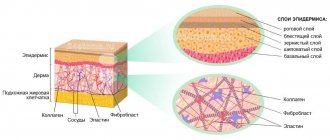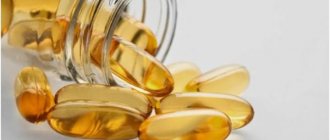Home — For the public
- Map of medical organizations
- Vaccination
- Clinical examination
- Fluorography
- Addresses and opening hours of clinics
- Emergency rooms
- Oncology
- Where to take an HIV test
- Healthy child's office
- Services
- Prevention of CVD
- Disease Prevention
- World Patient Safety Day
- Newspaper "Medical News"
- specialist
- School of Health
— Disease prevention
- HIV infection
- All about vaccination
- All about proper nutrition
- Hepatitis
- Flu
- Dementia
- Schoolchildren's health
- STD
- Tick-borne encephalitis
- Whooping cough
- Measles
- Legionellosis
- Meningococcal infection
- Oncology
- Acute intestinal infection
- Pediculosis
- First aid
- Pneumococcal infection
- Pneumonia
- Prevention of rabies
- Dependency Prevention
- Rotavirus infection
- Diabetes
- Cardiovascular diseases
- Injuries
- Tuberculosis
- Tularemia
- Physical activity
- Obstructive pulmonary disease
- Exotic infections
- Ecology
- Why is swimming in ponds dangerous?
— All about proper nutrition — B vitamins
B vitamins are compounds whose sources are plant or animal foods. Their role in the body is to regulate biological processes. Vitamin deficiency occurs with dietary restrictions, stress, acute or chronic diseases of the gastrointestinal tract and poses a health hazard.
Physico-chemical characteristics
Vitamin B2 (riboflavin) is a water-soluble organic element. It is yellow-orange crystals with a bitter taste.
The substance has a structure that is resistant to various acids and not resistant to alkalis. It is destroyed under the influence of ultraviolet rays.
Riboflavin derivatives are part of a large number of redox enzymes.
Vitamin B2, like other water-soluble complexes, does not have the ability to accumulate in living tissues. In a short period of time, it is almost completely eliminated from the body naturally.
main sources
Riboflavin can be synthesized in small amounts in the intestines, but the body’s “own” vitamin B2 is not enough.
To avoid the adverse factors associated with vitamin B2 deficiency, it must be regularly obtained from external sources. A properly formulated diet will help provide the body with vitamin B2.
Riboflavin content in foods of animal origin:
| Product | Amount of vitamin B2 (average value) mg/100 g |
| Liver, kidneys | 4 |
| Eggs | 0,5 |
| Cottage cheese | 0,4 |
| Milk | 0,15 |
| Meat | 0,15 |
Riboflavin content in plant foods:
| Product | Amount of vitamin B2 (average value) mg/100 g |
| Yeast | 3 |
| Almond | 0,8 |
| Mushrooms: porcini, chanterelles, champignons | 0,4 |
| Broccoli | 0,3 |
| White cabbage | 0,25 |
| Buckwheat | 0,24 |
| Rice, pasta, white bread, vegetables, fruits | 0,04 |
Vitamin B2 is used in the food industry to enrich the composition of the product and as a natural coloring agent (additive E101).
In some cases, additional riboflavin is required. Causal factors may include:
- malnutrition;
- dieting;
- increased physical activity;
- diseases;
- elderly age;
- unfavorable environmental conditions.
To maintain and improve the body, additional sources of riboflavin are used for preventive and therapeutic purposes:
- vitamin complexes;
- biologically active additives;
- medicines based on it.
In case of general malaise and the presence of diseases, these drugs are taken as prescribed by a doctor.
Main functions
Vitamin B2 is an active substance that supports the functioning of the entire body. Riboflavin:
- It is a necessary link in redox processes, converts other important components (including vitamins B6, D, folic and nicotinic acids) into active forms.
- Promotes the production of red blood cells, which ensure the internal distribution of oxygen.
- Takes part in the production of antibodies necessary to protect the body from infections.
- Ensures coordinated activity of the nervous system.
- Regulates hormonal function.
- Clears the lungs of toxins.
- Neutralizes free radicals, providing an antioxidant effect.
- Protects the retina of the eyes from UV radiation.
- Prevents the development of cataracts.
- Normalizes the flow of bile.
- Improves the absorption of vitamin B6 and iron.
- Regulates metabolic processes.
- Participates in energy exchange.
Vitamin B2 is an essential component in the human body. A deficiency of this substance leads to serious functional disorders.
Beneficial features
Riboflavin has beneficial effects on health. As a result of taking drugs based on it, the following is noted:
- improvement of general well-being;
- increasing energy potential;
- reduction of irritability and anxiety;
- slowing down age-related changes in the brain;
- improved muscle function, including the heart;
- relief from headaches, migraines;
- optimization of visual functions;
- normalization of blood clotting;
- rapid healing of damaged tissues;
- improvement of the condition of skin, hair, nails;
- increasing the body's resistance.
Doctors recommend that women take vitamin B2 during pregnancy, as this component promotes the proper development of the fetus.
Consumption rate
For full life activity, the amount of riboflavin entering the body must be sufficient.
The daily requirement for this substance is as follows:
| Category of persons | Age | Vitamin B2 norm mg/day |
| Babies | up to 6 months | 0,4 |
| 7-12 months | 0,6 | |
| Children | 1-3 years | 0,9 |
| 4-8 years | 1,3 | |
| 9-13 years | 1.9 - boys 1.7 - girls | |
| Adults | from 14 years old | 1.7 - men 1.8 - women |
| Pregnant | — | 2 |
| Nursing | — | 2,2 |
With intense physical, mental, emotional stress, as well as with increasing age, the need for riboflavin increases.
Daily values of B vitamins
When answering the question of how much B vitamins you need to get, you need to take into account the characteristics of your environment, gender, age, the presence of certain diseases, and increased physical or emotional stress on the body. The table below shows average standards.
| Vitamin name | Need for children | Requirement for adults/mg/day |
| B1 | 0,2-0,9 | 2 |
| B2 | 0,4-1,8 | 1,5-2 |
| B3 | 2-12 | 20 |
| B5 | 1-5 | 4-6 |
| B6 | 0,2-1 | 1,3 -2 |
| B7 | 5-20 | 30 |
| B9 | 0,05-0,15 | 0,2-0,26 |
| B12 | 0, 0004-0,0018 | 0,0025 |
B vitamins are classified as water-soluble compounds. This means that it is almost impossible to “eat your fill” with them. Substances are not stored in adipose tissue, but leave the body. The likelihood of hypervitaminosis against the background of a balanced diet is low.
Excess may also develop in response to long-term use of synthetic drugs. The main manifestations of hypervitaminosis include:
- hyperemia of the skin;
- allergic reactions;
- diarrhea, abdominal pain;
- sleep disorders;
- cramps in the muscles of the arms/legs;
- headache.
Vitamin B2 deficiency
The lack of a substance in the body affects, first of all, the state of the nervous system and skin. The following symptoms are observed with hypovitaminosis:
- general weakness, lethargy, apathy;
- increased irritability;
- memory impairment;
- sleep disturbance;
- headache;
- low pressure;
- blurred vision;
- photophobia;
- development of conjunctivitis, keratitis, cataracts;
- feeling of weakness and muscle pain;
- pale and dry skin;
- seborrheic dermatitis in the areas of the nose, ears, eyelids;
- the appearance of cracks and ulcers on the lips;
- swelling and hyperemia of the tongue - glossitis;
- prolonged wound healing;
- anemia.
The main reasons that lead to a decrease in riboflavin levels include:
- Lack of dietary sources of vitamin B2.
- Using cooking methods that destroy this component.
- Improper storage of products containing it.
- Diseases of the digestive tract.
- Taking medications that are riboflavin antagonists.
- Alcoholism.
Vitamin B2 deficiency often leads to a deficiency of other water-soluble components. Natural nutritional supplements based on it will help restore the required level of the substance in the body.
The role of B vitamins for the body and immunity
This group of vitamins has a lot of common properties, which made it possible to combine them into one. The most important point is their water solubility. This allows vitamins not to accumulate in the body, but to be constantly washed out of the circulatory system by the ingested liquid.
One product can contain a whole list of B vitamins. Therefore, in the complex treatment of deficiencies, doctors give a whole list of elements that must be consumed. B vitamins are beneficial for the body in the following ways:
- normalize the functioning of the nervous system;
- improve the functions of the cardiovascular system;
- have a beneficial effect on the functioning of the intestinal tract;
- improve skin tone and elasticity;
- reduce the risk of stressful situations, stress on the body, help cope with depression and emotional stress;
- help in cell reproduction, strengthen muscle tone and improve energy metabolism;
- help strengthen the immune system and increase the body's resistance to various diseases.
Thanks to the complex intake of B vitamins in the body, the level of cholesterol in the blood is reduced, the processing of products in the digestive tract is accelerated, beneficial substances are better synthesized, and the process of metabolism of proteins, fats and carbohydrates is accelerated. Wounds, abrasions and bruises from injuries heal faster. At the same time, the level of pain is noticeably dulled.
The condition of the skin improves, the complexion evens out, and eczema goes away. The body's protective properties increase, which leads to increased production of hemoglobin, which is involved in the process of restoration of red blood cells that generate the production of antibodies.
Hypervitaminosis
Riboflavin obtained as part of products practically does not accumulate. Its excess is excreted in urine, which turns bright yellow.
Hypervitaminosis can develop due to excessive consumption of substances in medications. This usually occurs when the instructions or recommendations of a specialist for its use are violated.
Against the background of hypervitaminosis, symptoms such as:
- general weakness;
- dizziness;
- numbness of the limbs;
- itching, burning sensation in the arms and legs.
With a significant and prolonged excess of the dosage, the risk of developing diseases such as cerebral insufficiency and fatty liver hepatosis increases.
Where do pigment spots come from?
Pigment formation is a complex process that involves many factors (for example, excessive melanin production and its uneven distribution on the skin surface).
The cosmetologist at the clinic strives to identify the cause of the spots in order to find the right solution. However, no method can guarantee 100% results. Skin whitening cosmetics, as a rule, are not able to cope with age spots alone.
Therefore, in order to increase the chances of success, doctors combine in-clinic procedures with home care.
Indications for use
Riboflavin-based drugs are used for the prevention and treatment of a number of disorders, including:
- vitamin deficiency;
- nervous system disorders;
- deterioration of visual functions;
- conjunctivitis, keratitis, cataracts;
- cheilitis, stomatitis, glossitis;
- skin diseases;
- slow healing wounds;
- gastrointestinal disorders;
- hepatitis, liver cirrhosis;
- diabetes;
- radiation sickness;
- anemia;
- leukemia
Additional intake of riboflavin is indicated for disorders such as:
- decreased absorption of vitamins (including B2) from the gastrointestinal tract;
- intensive removal of organic compounds;
- hypoxia (acute and chronic);
- cardiac and respiratory failure.
- acute infections;
- burn disease;
- frostbite.
It is recommended to use drugs with this substance in combination with medications if you have:
Riboflavin is recommended to be taken in parallel with the use of antibacterial drugs that disrupt the natural intestinal microflora, as well as during phototherapy.
Treatment courses are carried out under the supervision of a specialist.
How do professionals treat pigmentation?
During the course of procedures carried out in the clinic, doctors first of all prescribe restorative, sedatives, and also during daylight hours, sunscreen with a high SPF, from 30 to 50.
At the end of the course, in winter, the cosmetologist will select a cream with retinol or fruit acids in low concentration, and in the summer - serum with vitamin C, the content of which is at least 10%.
The doctor also prescribes the intake of antioxidants - such as vitamin C, E, ubiquinone, bioflavonoids.
Upon completion of the first stage (course of procedures), cosmetologists prescribe the second stage - home care, which works in two directions: exfoliating procedures aimed at renewing the skin and reducing the production of melanocytes - pigment-producing cells.
The frequency of application of bleaching agents depends on the concentration of the substance contained in them.
They can be used daily or once a week at night. The duration of the course is determined by the doctor.
Features of interaction with other substances
The riboflavin content decreases when taking:
- ethanol;
- barbiturates;
- phenothiazine;
- antidepressants (tricyclics);
- tubular secretion blockers;
- thyroid hormones.
Vitamin B2 absorption increases when taken in parallel:
- probenecid;
- anticholinergic drugs.
Compatible with riboflavin:
- antihypoxants;
- anabolic agents;
- medications to treat anemia.
Vitamin B2 prevents the side effects of chloramphenicol (manifested by impaired hematopoiesis, optic neuritis).
When riboflavin is combined with tetracyclines, the activity of the latter may decrease.
Use in sports nutrition
Riboflavin is a valuable component for those whose activities involve increased physical activity. This is because vitamin B2:
- Participates in protein synthesis.
- Stimulates intercellular oxygen exchange, preventing the development of hypoxia.
- Improves muscle activity during sports.
- Promotes recovery after workouts.
With the systematic use of dietary supplements with vitamin B2, endurance increases and athletic performance improves.
Application in cosmetology
Riboflavin is one of the active substances that are widely used in the beauty industry.
Benefits of Vitamin B2 for Skin
With the help of riboflavin, you can maintain external attractiveness for a long time. Cosmetologists call this substance a “skin” vitamin, thanks to which:
- improves complexion;
- acne disappears;
- seborrhea goes away;
- cracks and ulcers on the lips heal;
- a rejuvenating effect is observed.
The beneficial effects on the skin are due to the fact that riboflavin:
- Exhibits antioxidant properties, inhibiting the negative effects of free radicals.
- Stimulates the formation of energy in cells.
- Helps saturate the skin with oxygen and nutrients.
- Regulates the metabolism of fatty acids.
- Participates in the regeneration and renewal of cells, promoting the healing of damaged tissues.
Cosmetics with vitamin B2 are well suited for problem skin. As a result of their use, inflammatory processes stop and irritation is relieved.
Riboflavin-based creams will help mature women renew their facial skin, restoring its former elasticity and firmness.
To achieve the desired effect, it is not necessary to use finished products. You can prepare an effective vitamin remedy yourself. For this purpose you will need liquid riboflavin (in ampoules).
Revitalizing face mask
Ingredients:
- high-fat kefir - 1 tbsp;
- lemon juice - 15 drops;
- vitamin B2 - ½ tsp.
Combine the ingredients and mix until smooth. Apply the mask in a thick layer to cleansed facial skin and leave for at least 15 minutes. After the time has passed, rinse off the product with cold water.
Benefits of riboflavin for hair and nails
Vitamin B2 has a beneficial effect on the scalp, normalizing the fat balance on its surface. Riboflavin:
- strengthens the hair structure;
- makes them shiny;
- prevents hair loss;
- promotes growth.
Vitamin B2 prevents delamination and brittleness of the nail plate.
For maximum effect, it is recommended to combine the use of cosmetics with the use of riboflavin-based preparations.
Why do you need to consult a cosmetologist?
There are no universal whitening products.
They must be selected individually for each patient. The cosmetologist takes into account skin type and sensitivity, lifestyle and even climatic conditions. For example, doctors cannot prescribe long-term use of fruit acids or retinol to a patient who regularly flies to hot countries or lives on the coast. In this case, antioxidants and adequate photoprotection are selected.
All active products for working with hyperpigmentation are prescribed strictly in the autumn-winter time, otherwise you can get the opposite effect.
When choosing a product according to the description, you do not always have the necessary information about what is and is not advisable to use. This is why independent use of professional or pharmacy products can lead not to whitening, but to serious problems.
Reviews of preparations with vitamin B2
Most consumers who take natural riboflavin supplements report positive changes in their health:
- increased vitality;
- increase in energy potential;
- improvement of brain activity;
- cessation of headaches;
- increased visual acuity, decreased fatigue, redness and tearing of the eyes;
- strengthening the immune system;
- increased hemoglobin;
- reduction of irritability and anxiety;
- improving sleep quality;
- rapid healing of wounds.
After a course of vitamin therapy, women notice pleasant changes in their appearance:
- cleansing the skin from acne;
- improvement of complexion;
- increased turgor;
- strengthening nails;
- stopping hair loss, improving hair growth.
The use of riboflavin in preparations and cosmetics will help maintain health, youth and beauty for a long time.
Vitamins for the face
Facial skin is most susceptible to external factors and requires special care. Many people engage in active sports and take great care of their health. They lead a healthy lifestyle and monitor their diet. Constantly nourish the body with useful minerals and vitamins. Caring about health in general, we forget about the needs of each organ. The skin of the face often does not receive enough beneficial elements that nourish and tone it. Problems with it can appear not only due to the influence of external factors or genetics, but also due to the lack of nutrients and proper care.
Sometimes we simply don’t attach much importance to it, but the skin of our face always gives us the opportunity to understand that some kind of disturbance or problem has arisen. For example, such as: irritation, rash, dryness, increased sweating, loss of skin tone. These are the first signals that she lacks support in the form of vitamins. A lack of beneficial elements can lead to dryness and wrinkles will begin to appear. The skin will become dehydrated and the aging process will accelerate. Vitamins will help maintain youth, make it elastic and healthy. You need to pay attention to the cosmetics that you use daily to care for your face.
Age-related changes also have a significant impact, which is not so easy to combat. Skin problems often make people feel uncomfortable. Every woman and man wants to look good at any age; you need to start taking care of your skin from adolescence. We don’t notice how time flies and the dermis quickly changes. Young skin gradually loses elasticity, becomes weakened and deep wrinkles appear. You need to take a comprehensive approach to caring for and feeding her. You need to take a course of vitamins, choose the right cosmetics and pay attention to your diet.
What vitamins are needed for healthy skin
Throughout life, the natural processes of the skin can be disrupted due to the influence of various factors. At such moments, the body does not have enough ability to maintain the skin elastic and beautiful. Problems arise due to disruption of biochemical processes in the skin. Vitamins will be an excellent help in the fight against disorders. It is necessary to add them to the diet and take them for the time specified in the instructions.
Vitamins you need for healthy facial skin
1. A-retinol acts as an antioxidant. It comes into the body from foods such as spinach, potatoes, mangoes, bananas, veal, eggs and dairy products. The vitamin helps maintain skin. It can be included in many creams that prevent the appearance of age-related changes. If you choose a vitamin A treatment, you should only use it later in the day. Due to the fact that it is sensitive to sunlight and is destroyed. Retinol has an anti-inflammatory effect, promotes collagen production and improves regeneration.
2. B1,2,5,6,9,12 vitamins of this group will help get rid of acne. Promote cell regeneration and tissue renewal. Accelerate the healing of cracks on the lips, remove peeling on the face. They nourish the skin with oxygen, due to this it acquires a beautiful and even tone. Protects from the negative effects of sunlight. They return the skin to its former tone and add elasticity.
3. D - vitamin ensures normal cell cycle and is essential for healthy skin. It is often called the sun vitamin and is absorbed into the body through sunlight. Prevents the aging process and maintains skin elasticity and hydration.
4. E - vitamin is often used to combat dull and dehydrated skin. It is used in cases of pigmentation, freckles and shallow wrinkles. Smoothes expression lines and normalizes lipid balance. It is found in our usual food products. For example: dairy products, avocado, almonds, fish, vegetable oil. Vitamin E is often added to homemade therapeutic masks and creams. Masks help fight redness on the skin, remove acne, and help reduce sebaceous secretions. Protects the skin from the negative effects of free radicals and helps get rid of acne.
5. PP - nicotinic acid is often used to treat problem skin. It promotes restoration and rapid cell renewal. Eliminates scars and helps get rid of dermatitis. Contained in foods familiar to us, milk, pork, tomatoes and cereals.
6. R - rutin is often used in cosmetology to treat vascular network. Couperosis most often appears in the cheeks, chin, nose and makes the skin thin and vulnerable. Vitamin P will keep skin cells young and healthy.
7. F - vitamin is responsible for skin restoration. Removes dark circles under the eyes and relieves puffiness of the face. Improves cellular metabolism and protects against external factors.
8. H - biotin protects the skin from the influence of external factors. Prevents the development of dermatitis and dry skin. Fills it with collagen and returns its former tone. Participates in fat and carbohydrate metabolism.
+ 23.56 bonus rubles
NatrolVitamin B-12 5000 mcg Fast DissolveVitamin B12 (Cobalamin)RUB 1,178
+ 19.74 bonus rubles
NOWVitamin D3 5000 IUVitamin D987 rub.
+ 34.68 bonus rubles
SolgarVitamin E 400 IUVitamin E1 734 rub.
+ 24.58 bonus rubles
SolgarVitamin B6 50 mgVitamin B6 (Pyridoxine)RUB 1,229
Types of vitamins for facial skin
Taking vitamin complexes affects not only the internal state of the body, but also its appearance. There are many types of vitamin complexes that not only strengthen the immune system, but also improve the skin. Prevents the development of skin diseases.
Many people prefer to take vitamins separately. You can achieve the desired effect only if you know what specific element is missing in the body. Before starting the course, undergo an examination and a specialist will prescribe the necessary vitamins. They come in the form of tablets, capsules or powder.
Everyone knows that proper nutrition has a great impact on the condition of the body and skin. Each of us has noticed how unhealthy and fatty foods affect the body’s condition. For some, it manifests itself as an allergic reaction on the body. Redness and unpleasant itching appear, others begin to swell and health worsens. If you want to improve the condition of your facial skin, you need to improve your diet and sleep patterns.
Cosmetic masks have a significant impact on the condition of the skin. Choosing the right care that works cumulatively and improves the skin is not so easy. There are also those who prefer to make masks and creams at home. They combine natural elements and add essential vitamins in powder form. The use of these products can quickly nourish the skin with beneficial vitamins and minerals.
It will be most effective to combine several methods at once. And don’t forget about cosmetic procedures. You need to cleanse your face regularly. Remember that all vitamins are absorbed differently. Their excess can lead to hypervitaminosis.
Vitamin complex in ampoules
Liquid ampoules are an effective and quick way to restore a healthy appearance to your skin. They are often used to combat dryness and deep wrinkles. They are able to soothe inflamed skin and fill it with collagen. Ampoules can be used in pure form or combined with masks. It is better to consult a specialist in advance. You need to know which vitamins you need.
Some of them do not combine with each other and may have the opposite effect. When using ampoules or preparing the product, you can use only one vitamin to avoid negative consequences. Vitamins in ampoules should be rubbed into the skin with smooth circular movements. Initially, it is worth applying the composition to the inside of the elbow and checking for an allergic reaction. You can also add it to your favorite cream or any other care. This will enhance the effect of vitamins on facial skin and restore a healthy appearance.
Vitamin C for healthy facial skin
Many of us, with any cold, begin to actively eat lemons, oranges and drink ascorbic acid. Vitamin C can not only strengthen the immune system, but also improve skin condition. It acts as a powerful natural antioxidant. Actively fights free radicals that destroy our cells. Promotes rapid healing of wounds and relieves inflammation. Drinking orange and lemon juice in the morning is certainly good for the body. May show that there should be no vitamin C deficiency. Our body is not able to synthesize it itself; it comes to us with food. For example, with citrus fruits, berries, tomatoes, peppers. The skin rarely gets enough of it. The intestines limit its absorption in the body.
Vitamin C promotes the production of collagen in the dermis. Makes the skin dense and restores its former tone. Used as an ointment to heal microcracks in the skin and stop the aging process. Vitamin C is often used in cosmetic procedures. The effect of using a cream or mask depends on the given formula. It is included in most skin whitening creams, anti-wrinkle cosmetics, and for postoperative wound healing. Vitamin C has many beneficial properties. It moisturizes the skin well, while forming a protective layer that prevents moisture loss. Makes the skin resistant to sunlight and prevents burns on the face. It is able to remove the consequences after the appearance of acne and rashes.
How to achieve elastic and beautiful facial skin
Trying to get rid of external skin problems, many often forget that internal reasons can also influence this. The face is an indicator of the health of our body. Impaired functioning of the skin can be caused by an unstable emotional state, constant stress and hormonal imbalances, or associated with problems of the gastrointestinal tract. When our stomach is unable to cope with the removal of toxins from the body, they can enter the blood.
Toxins can cause problems not only in the body, but also affect the skin. If you want to prevent these situations from occurring, you must periodically take substances that help remove toxins from the body. To improve the functioning of the digestive tract, you need to increase the number of beneficial bacteria in it. Many people use natural sorbents or drugs to normalize intestinal function. They will gradually improve the microflora and return normal condition to the skin of the face.
Rules for taking vitamins
Vitamins must be used correctly; experiments should not be carried out. They can also have negative consequences, just like medications. An incorrect dosage or combination of vitamins may not give the desired effect or cause harm to the body. First you need to determine whether you want to improve the health of the body as a whole, or pay attention to the problem of a specific area. It is necessary to choose the most appropriate course of vitamins, the lack of which can negatively affect the condition of the dermis. It is best to consult with a specialist in advance. He will determine what products and in what form the facial skin lacks. You should not combine a vitamin complex with individual vitamins in the form of food supplements or ampoules. You need to choose one option and act according to the instructions in the instructions.
The skin needs vitamins constantly; take the course at least 3 times a year. There should be a short break of 1-2 months between doses. Make vitamin masks no more than 2 times a week. They will help even out your skin tone and moisturize it from the inside. Eat a balanced diet, eat more fresh fruits and vegetables. Make a healthy eating plan and try to stick to it. Lead an active lifestyle and maintain normal body health. Vitamins act as certain assistants in the fight for healthy, young, and beautiful facial skin. They are able to restore its former firmness and elasticity, or maintain tone and lipid balance throughout the entire period.











